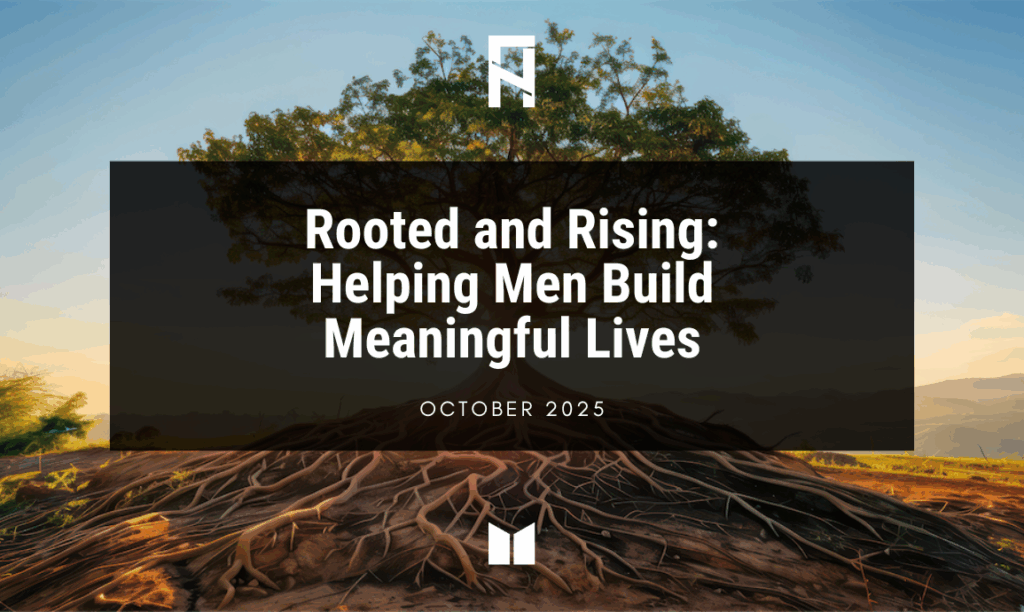Every day, Christian men fail morally—not because they don’t want to honor God, but because they have blind spots or weaknesses that they think they can manage on their own. They can’t. They need help, but they have no accountability from a trusted friend.

By the Man in the Mirror Team
In the last few issues, we’ve been talking about a critical component to sustaining momentum in your ministry to men: relationship.
There are different levels of relationships among men in the church. The guys who play at the pickup game during open-gym night don’t have the same type of relationship as the two men who deliberately enter into a 12-week mentoring program. Both relationships are important, but they are inherently different in terms of purpose and depth.
Just as we want to see men move down the “Wide-Deep Continuum” spiritually, we also want to help them move down it relationally. Why?
Every day, there are Christian men who fail morally—not because they don’t want to honor God in their decisions, but because they have blind spots or weaknesses that they think they can manage on their own. They can’t.
As Patrick Morley writes:
Some men have spectacular failures and in a moment of passion, they burst into flames, crash, and burn. More often, men make hundreds of tiny, undetected decisions that slowly, like water tapping on a rock, wear down their character. Not blatantly or precipitously, but subtly, we get caught in a web of cutting corners, compromise, and self-deceit. And no one asks us, ‘How? Why? What? And Who?’ Men fall because they don’t have to answer to anyone for their behavior and beliefs.
An isolated Christian man is an endangered one. And men can have plenty of acquaintances to high-five on Sunday morning and still be isolated with no accountability.
[click_to_tweet tweet=”An isolated Christian man is an endangered one.” quote=”An isolated Christian man is an endangered one.”]
If they don’t have any authentic, spiritual friendships with men, the risk is great. Because the truth is it will be very difficult for a struggling man to jump from talking about the game last weekend to confessing he’s developed romantic feelings for his married coworker. Or to go from discussing the weather to admitting his drinking has gotten out of control.
Acquaintances help men feel welcome, but men in authentic, spiritual friendships keep each other accountable.
How to Build Accountable Relationships
Proverbs 18:24 reminds us, “A man of many companions may come to ruin, but there is a friend who sticks closer than a brother.”
Having a hundred shallow acquaintances at church is worth less than having one brother who can encourage you, exhort you, and help safeguard you.
We often get questions from leaders about how to start an accountable group. Here’s one thing to keep in mind. As Brett Clemmer puts it, “It’s very difficult to start an accountability group. If it’s going to be effective, you can only become one.”
What do we mean by that? Accountability without relationship is legalism. In order for a man to truly open up and allow another man to hold him accountable, there has to be trust within the relationship, and the sense that he’s cared for. If he shares, instead, out of guilt, obligation, or fear, then he will almost certainly not share fully.
[click_to_tweet tweet=”Accountability without relationship is legalism.” quote=”Accountability without relationship is legalism.”]
Men, do you have a brother like this? Who do you ask and allow to keep you accountable? If not, make it a priority to develop spiritual friendships. If you aren’t sure where to start, join a small group! (If your church model only includes mixed-gender small groups, suggest that the men in the group get together on their own once a month, and that the ladies do likewise.)
Leaders, do you have a process in your church for helping men form spiritual friendships? These kinds of relationships take time and trust to build, so it’s important to create opportunities where they can be developed, such as discussion groups using heart-oriented resources with practical questions. But it’s also important to include fun activities in the opportunities; one shared, enjoyable experience can often do more to propel a friendship forward than anything else.
We recently spoke with a church who’d just completed the men’s study, GO: Journey to Biblical Manhood. One young man, Richard, shared, “This study really helped keep me accountable to others—being able to relate to each other and express our problems and not feel judged. It was an amazing experience and has helped me grow.”
As Richard grew relationally with the men at his table each week, he grew spiritually as well. Providing opportunities for guys to get around other guys and share freely is critical for the sustainability of your ministry.
If you do have small groups of men who are already in relationship and looking for a structured way to keep each other accountable in key areas, check out our Weekly One-Hour Accountability Checkup card. You may also order printed cards here.
THE BIG IDEA: The place for accountability is within relationship, and the purpose of accountability is to help one another become more Christ-like in all our ways and be ever more intimate with Him.
♦♦♦
[vc_widget_sidebar sidebar_id=”businesslounge-free-2″]







This is a blessing to life,God bless you.As a man I have learned on how to cope with my individual life.